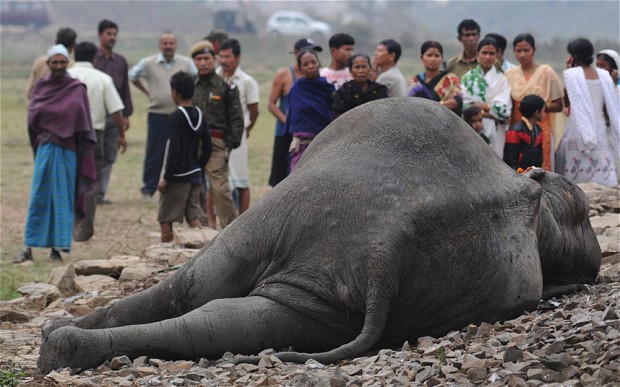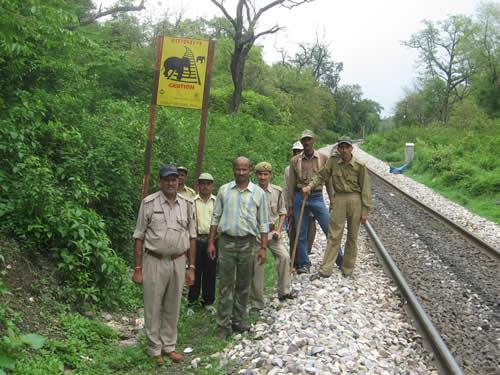Alarmed by the rate of elephant deaths on tracks last year, the Union Environment Ministry has directed their respective state forest departments to have their staff on high alert to prevent elephants and other wild animals from being killed by speeding trains.

Too Many Deaths
The issue was addressed by the director general of forests, S.S.Negi, who said in his letter, “death of elephants due to train accidents has assumed alarming proportion in recent past”.
Negi, who is also special secretary, Ministry of Environment, Forest and Climate Change (MoEFCC) stated that at least 18 elephants had been killed in the past few months across the country according to newspaper reports.These include,
- Two elephant deaths in Tamil Nadu (June)
- Three in Kerala (July and November)
- Three in West Bengal (August)
- One in Uttarakhand (October)
- Seven in Assam (December)
Negi in his letter further suggests that forest officials be put on high alert and take appropriate preventive action in coordination with State railway authorities to reduce death/injury to elephants and other wild animals on account of train accidents.
Read More: Tracking The Jumbo Tragedy On The Tracks
Detailed inquiry into each and every elephant death and quick submission of an inquiry report along with the post-mortem report of elephants has been requested.

Precaution and Prevention
The Ministry has repeatedly given directives to the state forest departments in the past too and expressed concern over elephant deaths on railway tracks.
In July, following the death of a 10-year old tusker in Walayar, the forest department officials had requested the railway officials to reduce the speed of trains in elephant corridors.
Read More: Crowd Makes Way For Elephant To Rescue Her Calf
In August, the Minister of State for Environment, Forest and Climate Change Anil Madhav Dave had ordered an extensive report on train accidents in West Bengal in which three elephants were killed. The state forest department officials were directed to discuss the issue with Railways authorities and put into effect measures for the protection of elephants.
In a case in the Supreme Court on the issue of elephant deaths on railway tracks, the MoEFCC had submitted an affidavit, proposing a special emphasis on the use of technology, such as 24X7 electronic surveillance and wireless sensors, to prevent elephant deaths from collisions with trains.
In the meantime, the Ministry has also taken measures to create a regional landscape plan for the conservation of elephants in the East Central Elephant Landscape, which includes the states of West Bengal, Odisha, Jharkhand and other elephant areas, where a number of such incidents take place.
Several precautionary measures have been suggested to the states by the environment ministry for preventing such incidents.

Some of these measures are:
• Clearing Vegetation along the sides of railway tracks
• Building underpasses/overpasses/ girder bridges across vulnerable stretches of railway tracks to allow safe movement of elephants.
• Installing signage boards to alert train drivers at important points.
• Having sensitization programmes for train drivers/guards/station masters.
• Keeping railway track free of food wastes that attract elephants and other animals.
The Ministry of Railways has been requested to regulate the speed of trains in elephant corridors between sunset and sunrise.
The elephant is a protected species under India’s wildlife laws. Project Elephant was started in 1992 to protect Asian elephants, their habitat and corridors and tackle man-elephant conflict. In 2010, the elephant was declared an animal of national heritage by the Central Government to intensify measures for its protection.
Reference, Reference, Reference
Featured image via The Epoch Times





